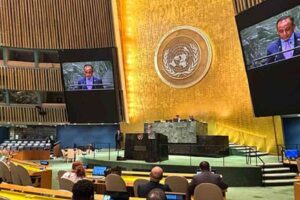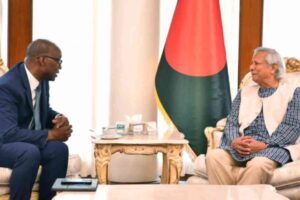
Commercial banks in Bangladesh are actively pursuing foreign funds to strengthen their offshore portfolios, aiming to offer customers dollar-denominated loans. The recent removal of a 20% tax on interest from foreign loans has reduced borrowing costs, sparking renewed interest in foreign financing, particularly from four local private commercial banks: City Bank, Prime Bank, Eastern Bank, and Bank Asia. These banks are currently in talks with the International Finance Corporation (IFC) to secure a total of $160 million to meet immediate US dollar liquidity needs and provide loans.
The exemption of the 20% tax on foreign loans has made foreign borrowings more attractive, with expectations that they will contribute to reducing the deficit in the country’s financial account by increasing dollar inflows. The IFC has sought the opinion of the Economic Relations Division of the Finance Ministry regarding potential investments in these banks to support working capital, trade-related dollar lending programs, and the broader Bangladeshi economy affected by the COVID-19 pandemic and global economic challenges.
Banks such as City Bank are now engaged in negotiations with the IFC, emphasizing that the tax exemption makes foreign borrowing more viable. These funds are crucial for improving dollar liquidity, facilitating dollar lending to importers and exporters, and contributing to reducing the overall deficit. Eastern Bank also expressed interest in securing foreign currency loans to address import bills and support businesses relying on imported raw materials.
Industry insiders suggest that, with IFC funds, banks could lend in dollars at an approximately 9% interest rate to local enterprises, compared to the 11% rate after the tax imposition in the current budget. The initial tax imposition was aimed at curbing foreign loan borrowing by both banks and businesses, leading to a decline in short-term foreign loans and contributing to a negative balance in foreign deposit accounts.
While the negative balance in foreign deposit accounts initially put pressure on financial accounts, the situation has been gradually improving as banks resume borrowing from foreign sources. The recent exemption of the tax until February has further incentivized banks to seek foreign financing, with imports hitting a 37-month low in December. The ongoing efforts by banks to source foreign funds aim to support economic activities, stabilize the forex market, and address dollar liquidity challenges faced by businesses in Bangladesh.


















